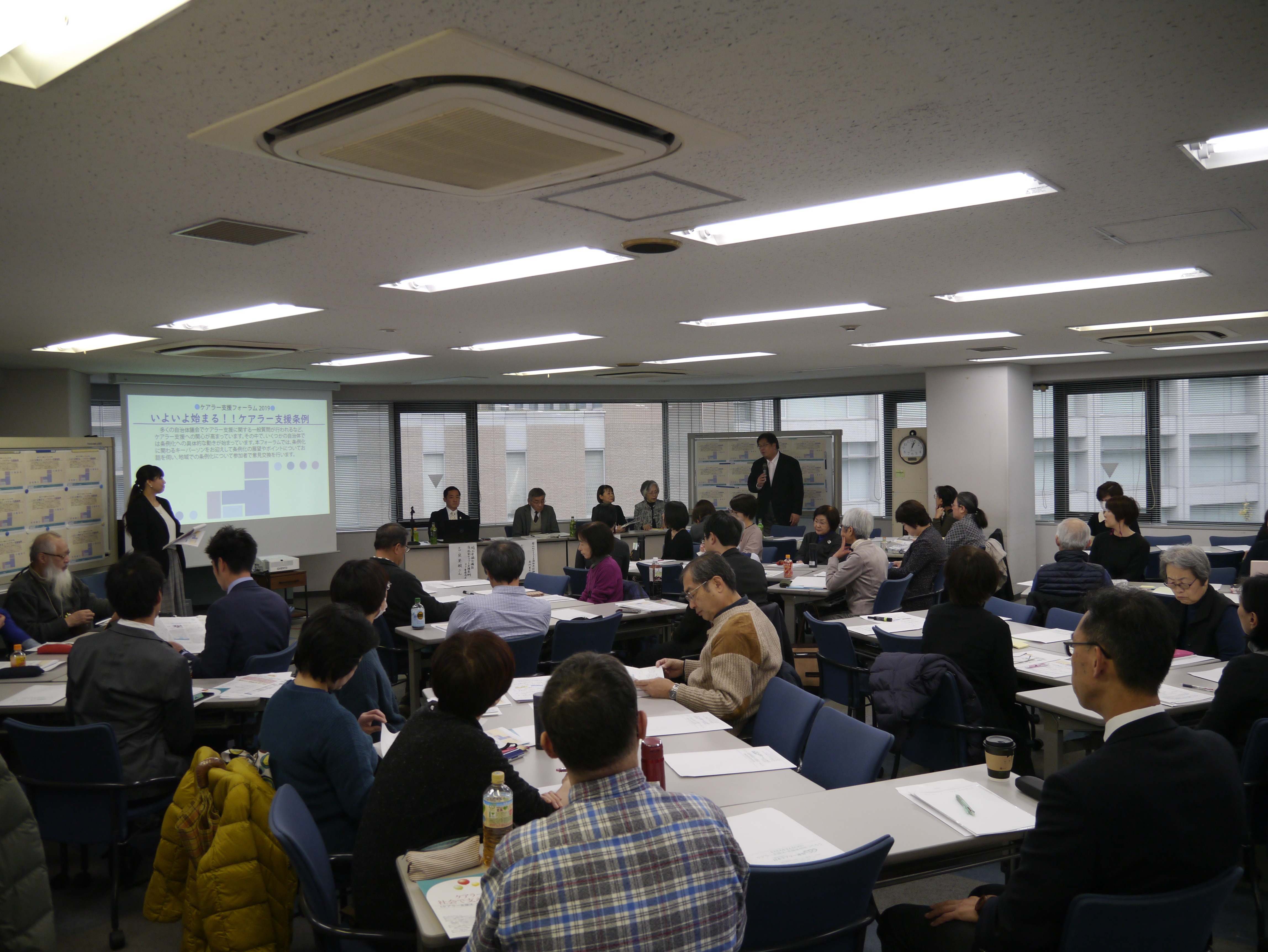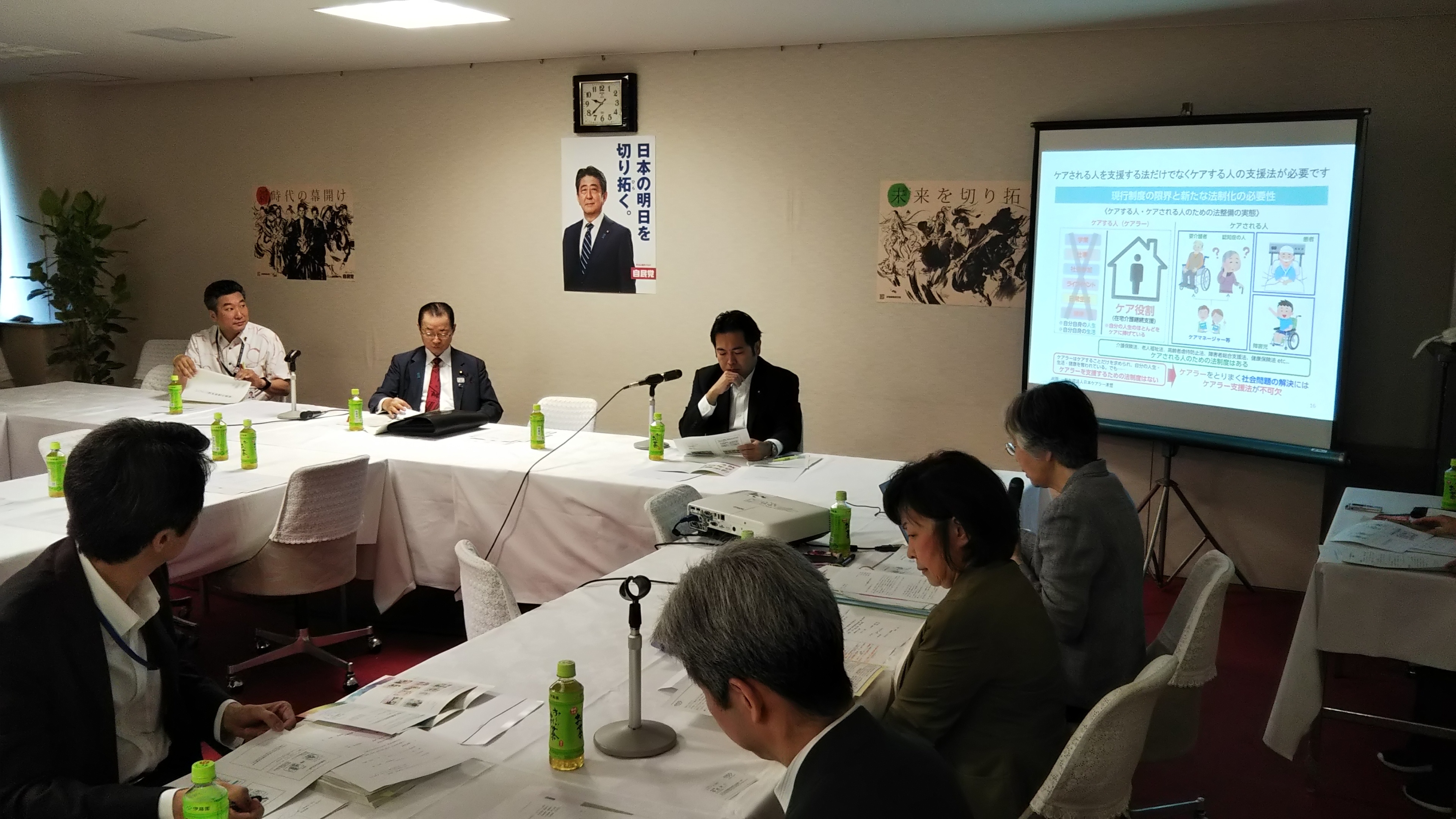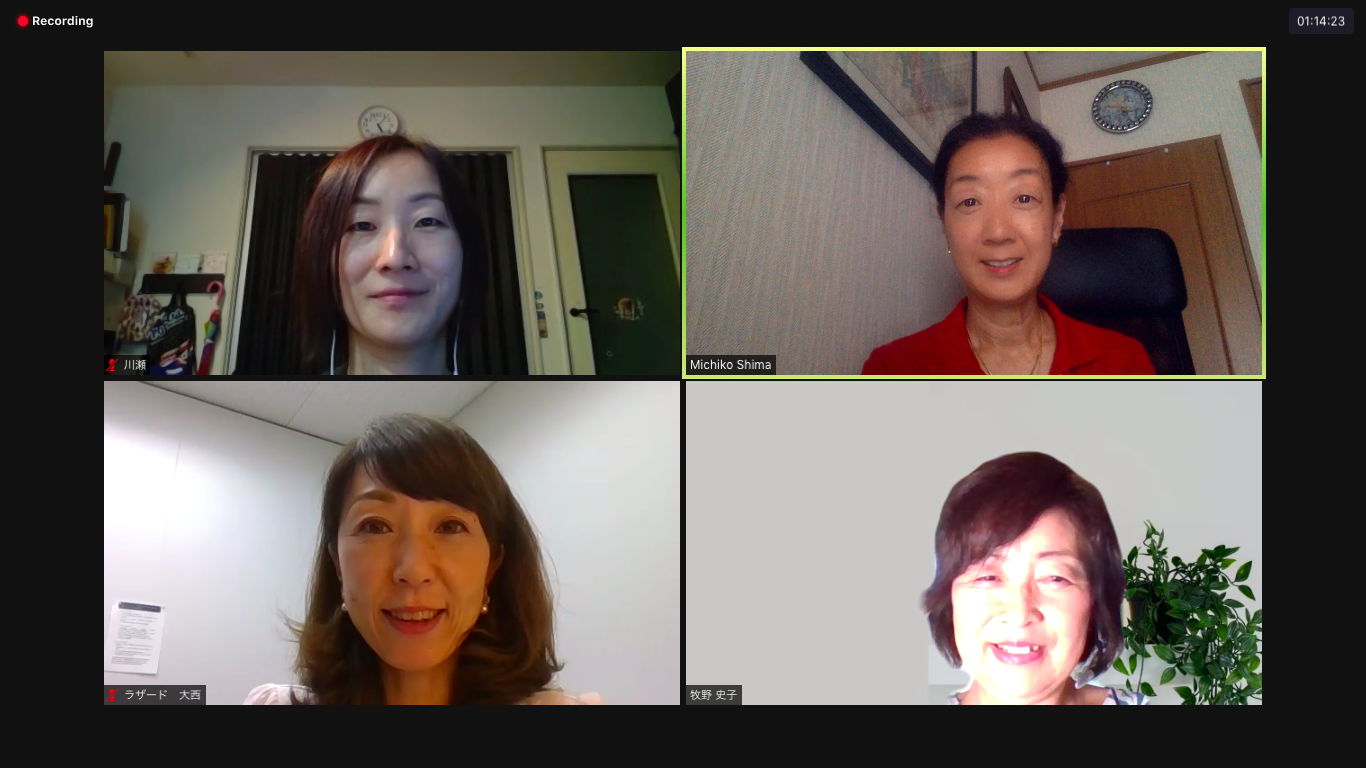Japan Carer Association
Japan Carer Association, one of our FIT 2020 beneficiary organisations, aims to implement policies to socially solve the problem of ”Carers” (free caregivers such as family members), Japan Carer Association (“JCA”) develops care support tools and conducts educational forums and training.
We spoke with Fumiko Makino, one of the executive directors.

Please tell us how you got involved in the charity
We have been supporting carers for about 20 years. I lived in Nishinomiya at the time of the Great Hanshin-Awaji Earthquake, where I was a victim myself. I began supporting people at the temporary shelter and saw many carers looking after their family members, being isolated from society.
I particularly remember a woman in her 70s who contacted a transportation service, six months after she finished caring for her husband. She was so weak and exhausted that she could only crawl herself around the house. I was shocked that caregiving had such a big impact on the carer's subsequent life.
In addition, we also realized that it was easier for those carers to open up their hearts to an acquaintance like us, rather than any professionals, government officials, or close neighbors. Therefore, we started this activity in 1999. At first, many people mistook our courses for training to be a helper. In 2001, an NPO called Aladdin was established in Tokyo, which conducts local activities to prevent the isolation of carers. And in 2010, I joined as a member of the Japan Carer Federation, to establish a law to protect the rights of the carers.
What was the most difficult and rewarding experience you’ve had in starting the charity?
The hardest part was that there was no law or framework to support carers in Japan, so there were no prevailing services or measures, and there was no budget for implementation. The government will not work without laws and framework. In Japan, a family member takes care of the family, and it is a culture that has depended on the power of the family. There is legal protection for individuals being cared for, but not for the sacrificing family.
The good news is that, as a result of many years of activities, we have become closer to creating policies for the carers and the word "carer" has been recognized.
Companies began to ask us for our knowledge in supporting carers, and we have been receiving calls for consulting and book publishing.
How will the FIT funds be used?
To mainly create policy pamphlets and hold forums to appeal for the adoption of regulations.
FIT grants are really appreciated for its flexibility, as typical grants are limited in their use, and our human resources are used to report and answer every query which can be exhausting.
What is your outlook for the future?
First of all, we want to make it a law based on the ordinance. If regulations and laws are enacted, local governments will have to change and society will change.
The UK is one of the leading countries in the field of support for carers, and in 2014, with the outbreak of the Young Carer Problem, the Nursing Care Act was enacted to provide support for carers. Social workers are sent to schools to find young carers and provide places where they can interact with their peers through community activities. Caring Support Centers are located throughout the country. The right of the carers to be assessed is also defined, which supports the carer’s needs, health and work/academic priorities, and job arrangements. Also, in an emergency situation where a carer is feeling exhausted, there is a system to temporarily leave a person requiring nursing care, with hundreds of officially approved support places.
In Australia, there is a "carer week" where people can communicate. In Germany and other countries, carer is regarded as social work and if certain conditions are met, they are eligible to receive a pension. As for the young carer issue, there is a system that allows them to continue their education and be part of the community.
In Japan, there is a shortage of human resources and budgets, but I think that if we ask people who have completed nursing their family members to share their experience and pass on their batons, things will go smoothly. In addition, I think that carers also need a guide who can easily consult with or provide information at an easy-to-find area (such as in front of a station).
Is there anything we can do now?
There are many people who are suddenly faced with caring for their family members and must quit their jobs early in their 30s and 40s. Once they quit, it may be difficult for them to return to work or reintegrate back into society, resulting in financial difficulties for the carer in their future.
With the declining birthrate and aging population, many people will have to begin looking after their family members before their own retirement. If we can create a place within the office where people can share their concerns, I think it will be a good way to lighten their minds and build an open atmosphere in a company. Care begins not only with physically feeding or excretion assistance. The scope of caring is wide, and there is a danger that the body and mind will be exhausted just with the thought of caring for their family. If there are any carers around you, please first help them by listening to them sincerely. Generic comments such as, "It’s your duty to look after your parents," or "There are people with more problems caring after their family," do not reach a carer's heart.
Also, I would like to suggest looking for support information for carers and create a community for people who are going through similar care. Just being able to talk and empathize makes a huge difference.
NPOs that support carers (Aladdin and Uptree) also hold seminars or have cafes to support people focusing on those who recently started to care for their family members. We introduce videos of people who have experienced caring for their family, explain types of insurance and benefits they can receive, etc. If your company is interested, please kindly contact me.
Japan Career Association
https://carersjapan.jimdofree.com/



